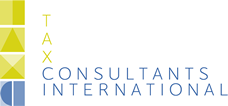As per 9 December 2016 the Dutch fiscal unity regime has been amended according to previous rulings by the Court of Justice of the European Union.
What has been changed?
The amended fiscal unity regime allows a fiscal unity between a Dutch parent company and a Dutch sub-subsidiary via an intermediate EU company (so called 'Papillon' fiscal unity). It also allows a fiscal unity between two or more Dutch sister companies held by a joint parent company established in the EU/EEA (so called sister fiscal unity).
Background of the amended Dutch fiscal unity regime
In 2014 the Court of Justice of the European Union ruled that the Dutch fiscal unity regime was in breach of the European freedom of establishment as it was not possible to form a fiscal unity between Dutch companies that were linked through European companies whereas Dutch companies that were directly linked through other Dutch companies could form a fiscal unity. This difference in tax treatment does not exist anymore as a result of the amended fiscal unity regime.


.png)

